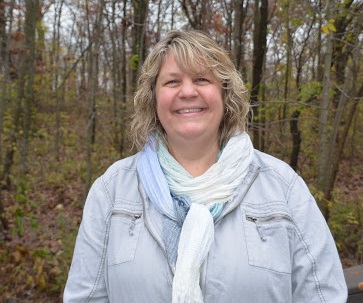Home > Team Leaders Making a Difference! Conversations on Leadership and Supervision in ACT
Northwest MHTTC is pleased to partner with Great Lakes MHTTC to deliver ACT-related resources and training to Region 10 Assertive Community Treatment Team Leaders and other supervisors of multi-disciplinary mental health treatment teams serving a high-needs population group.

 Lynette M. Studer, PhD, MSW, LCSW is a Clinical Assistant Professor at the University of Wisconsin-Madison Sandra Rosenbaum School of Social Work. She teaches MSW students in a mental health field unit as well as classes on Mental Health Policies & Services and Advanced Practice Skills in Mental Health. Prior to joining the UW-Madison faculty, she held a position as both an Agency Policy Specialist and State Administrator with the State of Minnesota Department of Human Services, Chemical and Mental Health Administration overseeing and improving policy and the provision of technical assistance for the state’s 32 Assertive Community Treatment teams who serve individuals with serious mental illness. Dr. Studer holds clinical social work licenses in both Wisconsin and Minnesota and has been a practicing clinical social worker for over 20 years.
Lynette M. Studer, PhD, MSW, LCSW is a Clinical Assistant Professor at the University of Wisconsin-Madison Sandra Rosenbaum School of Social Work. She teaches MSW students in a mental health field unit as well as classes on Mental Health Policies & Services and Advanced Practice Skills in Mental Health. Prior to joining the UW-Madison faculty, she held a position as both an Agency Policy Specialist and State Administrator with the State of Minnesota Department of Human Services, Chemical and Mental Health Administration overseeing and improving policy and the provision of technical assistance for the state’s 32 Assertive Community Treatment teams who serve individuals with serious mental illness. Dr. Studer holds clinical social work licenses in both Wisconsin and Minnesota and has been a practicing clinical social worker for over 20 years.
 Mimi Choy-Brown, PhD, MSW, is an Assistant Professor at the University of Minnesota School of Social Work. Informed by over a decade of practice and leadership in community mental health services, her research focuses on improving access to high quality mental health services for individuals who experience significant psychiatric disabilities and supervision-focused strategies to improve the implementation of recovery-oriented, evidence-based practices in routine care. She received her PhD from NYU and her MSW from Silberman School of Social Work at Hunter College.
Mimi Choy-Brown, PhD, MSW, is an Assistant Professor at the University of Minnesota School of Social Work. Informed by over a decade of practice and leadership in community mental health services, her research focuses on improving access to high quality mental health services for individuals who experience significant psychiatric disabilities and supervision-focused strategies to improve the implementation of recovery-oriented, evidence-based practices in routine care. She received her PhD from NYU and her MSW from Silberman School of Social Work at Hunter College.
 Maria Monroe-DeVita, PhD, is an Associate Professor, Department of Psychiatry & Behavioral Sciences at the University of Washington, School of Medicine, and the Director of the Washington State Center of Excellence in First Episode Psychosis. Her expertise is in implementation and services research related to evidence-based practices for adults with serious mental illness, particularly the Assertive Community Treatment (ACT) model. She has served as the Principal Investigator on several projects with the Washington State Division of Behavioral Health and Recovery, including the development, implementation, and fidelity assessment of 10 new ACT teams, and several Illness Management and Recovery (IMR) and Integrated Dual Disorder Treatment (IDDT) pilots across the state. She is also in the process of developing and testing novel approaches to better serving people with serious mental illness. She received a collaborative R34 grant from the National Institute of Mental Health (NIMH) to develop and pilot-test the integration of IMR within ACT teams and is working to better define and implement integrated primary care services within ACT. She is also the lead author of the new ACT fidelity tool – the Tool for Measurement of Assertive Community Treatment (TMACT) – which has been disseminated and pilot-tested in several U.S. states and countries.
Maria Monroe-DeVita, PhD, is an Associate Professor, Department of Psychiatry & Behavioral Sciences at the University of Washington, School of Medicine, and the Director of the Washington State Center of Excellence in First Episode Psychosis. Her expertise is in implementation and services research related to evidence-based practices for adults with serious mental illness, particularly the Assertive Community Treatment (ACT) model. She has served as the Principal Investigator on several projects with the Washington State Division of Behavioral Health and Recovery, including the development, implementation, and fidelity assessment of 10 new ACT teams, and several Illness Management and Recovery (IMR) and Integrated Dual Disorder Treatment (IDDT) pilots across the state. She is also in the process of developing and testing novel approaches to better serving people with serious mental illness. She received a collaborative R34 grant from the National Institute of Mental Health (NIMH) to develop and pilot-test the integration of IMR within ACT teams and is working to better define and implement integrated primary care services within ACT. She is also the lead author of the new ACT fidelity tool – the Tool for Measurement of Assertive Community Treatment (TMACT) – which has been disseminated and pilot-tested in several U.S. states and countries.
Want more information? Visit the Northwest MHTTC's Resource Library and Websites by Topic and sign up for our monthly newsletter for regular updates about events, trainings, and resources available to the Northwest region.